This article was co-authored by Padam Bhatia, MD. Dr. Padam Bhatia is a board certified Psychiatrist who runs Elevate Psychiatry, based in Miami, Florida. He specializes in treating patients with a combination of traditional medicine and evidence-based holistic therapies. He also specializes in electroconvulsive therapy (ECT), Transcranial Magnetic Stimulation (TMS), compassionate use, and complementary and alternative medicine (CAM). Dr. Bhatia is a diplomat of the American Board of Psychiatry and Neurology and a Fellow of the American Psychiatric Association (FAPA). He received an MD from Sidney Kimmel Medical College and has served as the chief resident in adult psychiatry at Zucker Hillside Hospital in New York.
There are 8 references cited in this article, which can be found at the bottom of the page.
This article has been viewed 28,616 times.
Prozac helps many people deal with depression and anxiety, but it can also cause a lot of side effects. If you want to stop taking Prozac because of the side effects, or for any other reason, it's important to be aware of the withdrawal symptoms you may experience in the first few weeks. These include chills, anxiety, depression, headaches, fatigue, dizziness, nausea, achy muscles, and an electrical sensation in the head (also known as "brain zaps").[1] If you plan in advance, you may be able to avoid these symptoms altogether. If that's not an option, you can at least make yourself more comfortable until these unpleasant symptoms pass.
Steps
Quitting Prozac Safely
-
1Talk to your doctor. If you've decided that you don't want to take Prozac anymore, it's important to have a conversation with your doctor about your options. Don't be afraid to ask about what Prozac withdrawal will be like and how to prevent it.[2]
- If you want to stop Prozac because of side effects, your doctor may want to switch you to another medication.
- If you can't afford your prescription or your doctor does not want to keep prescribing it for you, have a conversation about the best way to stop taking Prozac. You may also want to ask about any nonprofit organizations that may be able to help you pay for your medications.
- Keep in mind that you have to take antidepressants for at least six months to see an effect.
-
2Wean yourself off. The single best thing you can do to prevent withdrawal symptoms when you stop taking Prozac is to reduce your dosage very slowly over the course of several weeks or even months. Talk to your doctor to determine the right schedule for you. It will depend on a variety of factors, including your current dose and how long you have been taking Prozac.[3] [4]
- If you start experiencing severe withdrawal symptoms, call your doctor right away. He or she may recommend that you revert to a higher dose and taper off more slowly.
- The more slowly you taper your dosage, the less likely you are to experience withdrawal symptoms at all.
Advertisement -
3Stay motivated. In order to psychologically prepare yourself for withdrawal, take a moment to think about why you want to stop taking Prozac. Come up with a specific goal if you can, and consider writing it down to help keep yourself motivated and committed.
- If you do start experiencing withdrawal symptoms, it's important to remind yourself that they are only temporary and that it is necessary to endure them in order to reach your goal.
- You may find it helpful to keep a journal during the withdrawal process so you can go back and look at your progress.
-
4Get support. You will have a much easier time dealing with the symptoms of Prozac withdrawal if you have at least one person to confide in. This person can help you stay motivated, can support you when you feel emotional, and can help you out if you're not feeling well enough to do things around the house by yourself.[5]
- It's best to talk to the person you choose before you stop taking Prozac and explain the symptoms you might experience, as well as your reasons for wanting to stop taking the medication.
- There are also a variety of support groups online. These may be helpful if you would like some information regarding what to expect from other people who have experienced Prozac withdrawal, or even just some encouragement.
- Some areas have crisis lines and hotlines that you can call for help and support. You can also try an online chat line if you are feeling suicidal.
-
5Prevent a relapse of depression symptoms. In order to avoid the depression or anxiety you were experiencing before you started taking Prozac, it's important to have a plan for how you will combat these symptoms. Depending on your unique circumstances, you may want to try therapy, a different medication, or even lifestyle changes, such as a healthier diet and increased exercise.
- You may feel depressed or anxious while your body is withdrawing from Prozac, but it may not be a relapse of the condition that caused you to take the drug in the first place. If your symptoms are only temporary, they are likely just a symptom of withdrawal, so do your best to cope with them. If you continue to feel depressed or anxious even after the other symptoms of withdrawal have passed, you may be experiencing a relapse, so talk to your doctor about your treatment options right away.[6]
- Your doctor will have to monitor your mental status and your risk for suicide. Studies have shown people on antidepressants have a higher risk than placebo for suicidal ideation.
Minimizing Withdrawal Discomfort
-
1Embrace a healthy lifestyle. In order to help your body function at its best, it's important to take up some healthy habits. Make sure that you eat a balanced diet, stay hydrated, exercise, and get lots of sleep.[7]
- Try to establish a regular schedule and reduce your stress as well, as this will increase your chances of being able to combat your depression and anxiety without Prozac.[8]
- Cut yourself a little slack and let yourself relax while you withdraw from Prozac. Try to avoid committing yourself to anything strenuous or stressful, as you may not be feeling up to participating.
-
2Wear layers. You may experience fever-like symptoms while withdrawing from Prozac, so it's a good idea to dress in layers. This will allow you to strip down to a light layer when you feel sweaty, and to bundle up when you get the chills.
-
3Consider supplements. There are a variety of over-the-counter supplements that may help reduce certain symptoms you are experiencing during Prozac withdrawal. It is important to talk to your doctor before you start taking any supplements, as they may interact with one another or with other medications you are taking.
- If you are unable to sleep, you may want to take Melatonin.
- If you are feeling fatigued, you may want to take a Vitamin B complex or Rhodiola Rosea. Be particularly careful when taking Rhodiola Rosea since it interacts with many other medications.[9]
- If you are feeling depressed, anxious, or irritable you may want to try Sam-e or magnesium. St. John's Wort can be helpful in treating depression as well, but overlapping its use with Prozac is not recommended, because St. John's Wort can make Prozac's side effects worse; wait two weeks after you finish taking Prozac to try St. John's Wort.[10] . St. John's Wort interacts negatively with many other medications as well.
- If you are experiencing brain zaps or mental fogginess, omega-3 fatty acids (like fish oil or krill oil) may help.
-
4Ask your doctor for a prescription. If your symptoms become severe, your doctor may be able to offer you some relief by prescribing a medication to help combat nausea or insomnia. These will be taken for a very short period of time.[11]
-
5Remain calm. It's important to keep in mind that withdrawal symptoms are temporary and are not dangerous or damaging to your health. Try not to panic if you experience unusual symptoms like brain zaps.
- Feel free to contact your doctor if you are having trouble coping with your symptoms. He or she may be able to offer you additional advice on how to reduce the symptoms, which may include temporarily increasing your dosage of Prozac. Your doctor can also help you identify if you have any symptoms that are not related to Prozac withdrawal.
Expert Q&A
-
QuestionWhat's the best way to get off of Prozac?
 Padam Bhatia, MDDr. Padam Bhatia is a board certified Psychiatrist who runs Elevate Psychiatry, based in Miami, Florida. He specializes in treating patients with a combination of traditional medicine and evidence-based holistic therapies. He also specializes in electroconvulsive therapy (ECT), Transcranial Magnetic Stimulation (TMS), compassionate use, and complementary and alternative medicine (CAM). Dr. Bhatia is a diplomat of the American Board of Psychiatry and Neurology and a Fellow of the American Psychiatric Association (FAPA). He received an MD from Sidney Kimmel Medical College and has served as the chief resident in adult psychiatry at Zucker Hillside Hospital in New York.
Padam Bhatia, MDDr. Padam Bhatia is a board certified Psychiatrist who runs Elevate Psychiatry, based in Miami, Florida. He specializes in treating patients with a combination of traditional medicine and evidence-based holistic therapies. He also specializes in electroconvulsive therapy (ECT), Transcranial Magnetic Stimulation (TMS), compassionate use, and complementary and alternative medicine (CAM). Dr. Bhatia is a diplomat of the American Board of Psychiatry and Neurology and a Fellow of the American Psychiatric Association (FAPA). He received an MD from Sidney Kimmel Medical College and has served as the chief resident in adult psychiatry at Zucker Hillside Hospital in New York.
Board Certified Psychiatrist The answer to this is going to be different from person to person. In general, your psychiatrist will work with you to develop a treatment plan that involves tapering the medication down over time. But again, step one is to communicate with the medical professionals you're working with.
The answer to this is going to be different from person to person. In general, your psychiatrist will work with you to develop a treatment plan that involves tapering the medication down over time. But again, step one is to communicate with the medical professionals you're working with.
Warnings
- Always talk to your doctor before you start or stop taking any prescription or over-the-counter medication.⧼thumbs_response⧽
- Your depression symptoms may come back when you stop taking Prozac, so don't stop taking it simply because you feel better.[12]⧼thumbs_response⧽
References
- ↑ https://www.nhs.uk/mental-health/talking-therapies-medicine-treatments/medicines-and-psychiatry/stopping-or-coming-off-antidepressants/
- ↑ Padam Bhatia, MD. Board Certified Psychiatrist. Expert Interview. 3 April 2020.
- ↑ Padam Bhatia, MD. Board Certified Psychiatrist. Expert Interview. 3 April 2020.
- ↑ https://www.nhs.uk/mental-health/talking-therapies-medicine-treatments/medicines-and-psychiatry/stopping-or-coming-off-antidepressants/
- ↑ https://www.mind.org.uk/information-support/drugs-and-treatments/medication-coming-off/planning-for-withdrawal/
- ↑ http://psychcentral.com/lib/ssri-discontinuation-or-withdrawal-syndrome/
- ↑ http://www.health.harvard.edu/diseases-and-conditions/going-off-antidepressants
- ↑ http://psychcentral.com/lib/ssri-discontinuation-or-withdrawal-syndrome/
- ↑ https://www.mhanational.org/rhodiola-rosea
About This Article
If you’re worried about handling Prozac withdrawal, start by talking to your doctor so they can walk you through the withdrawal process. Try to reduce your dosage slowly over a few weeks or months, which will give your body more time to get used to you quitting. Since feeling feverish is a common withdrawal symptom, try to dress in layers so that you can strip down or put something back on depending on whether you feel hot or cold. You should also try to maintain a balanced diet and get plenty of sleep, which will help your body function at its best. Additionally, talk to your doctor before taking any over-the-counter supplements to reduce withdrawal symptoms, such as melatonin for sleeping problems. For tips from our Medical co-author, including how to get support for depression symptoms during your withdrawal, keep reading!
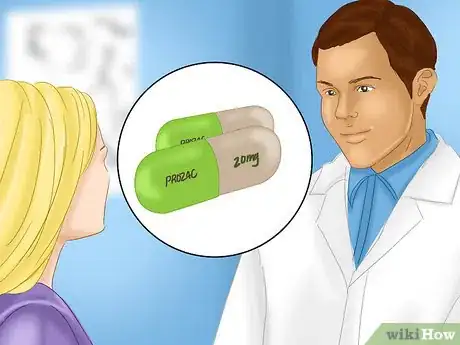

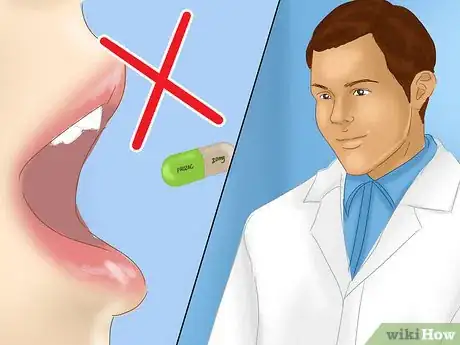
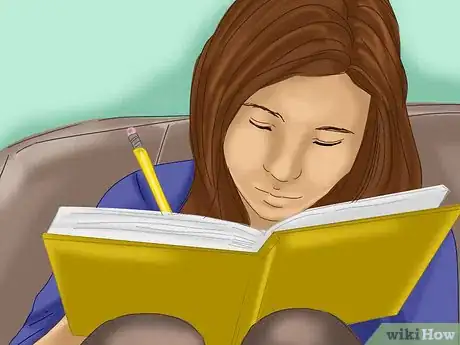
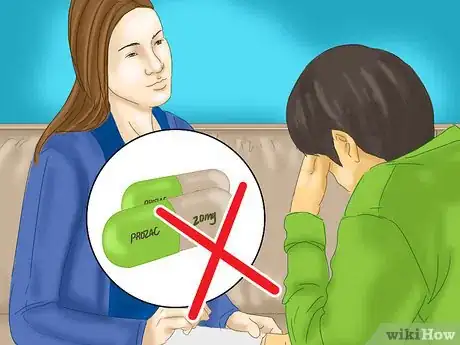
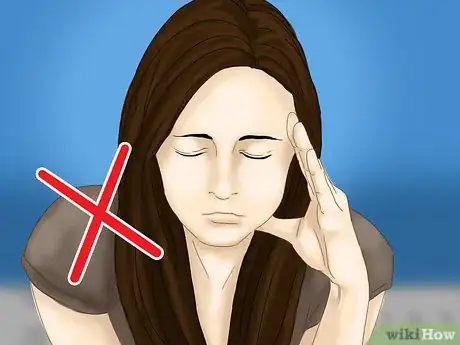
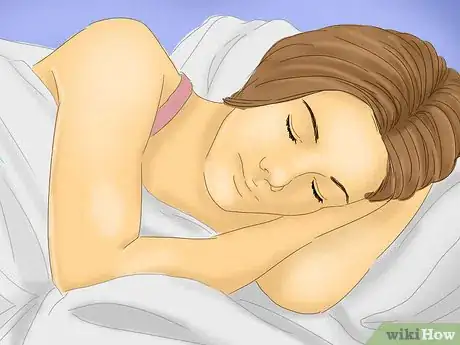
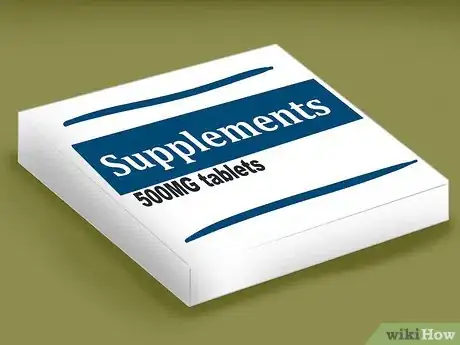
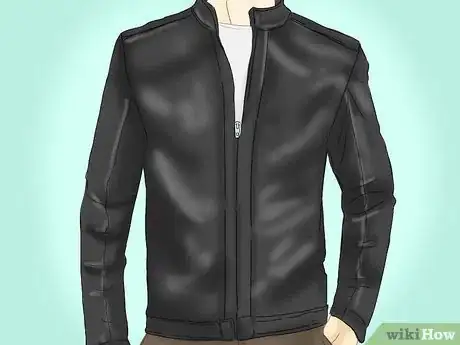
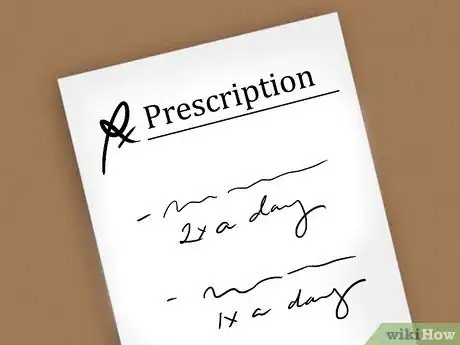
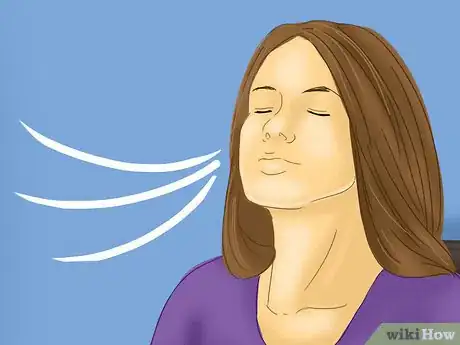
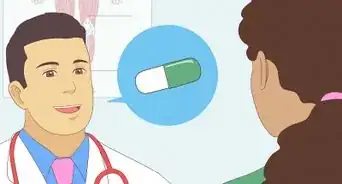
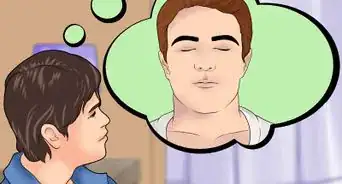
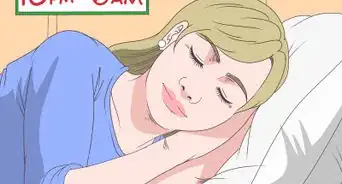
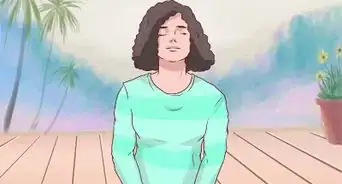

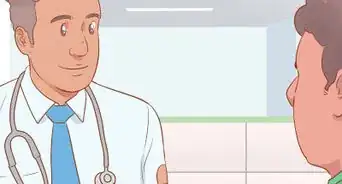
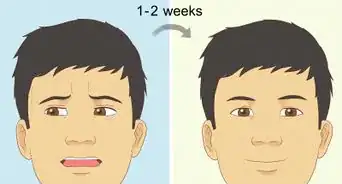
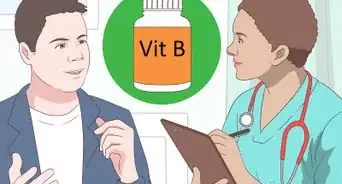
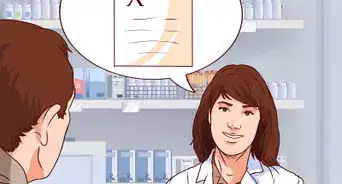
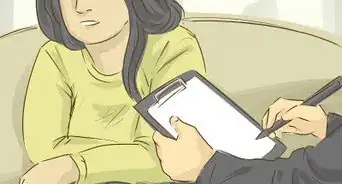
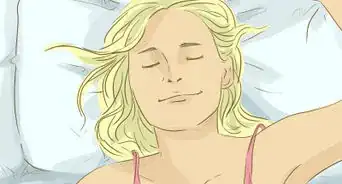
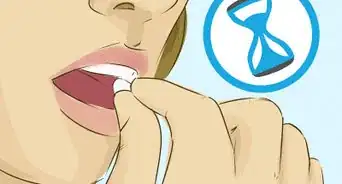
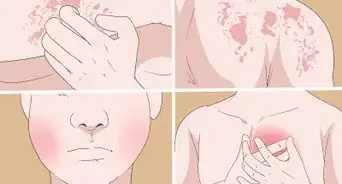
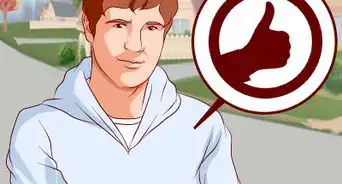






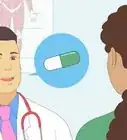
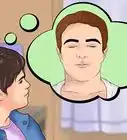
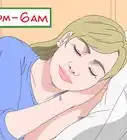
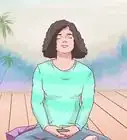



































Medical Disclaimer
The content of this article is not intended to be a substitute for professional medical advice, examination, diagnosis, or treatment. You should always contact your doctor or other qualified healthcare professional before starting, changing, or stopping any kind of health treatment.
Read More...